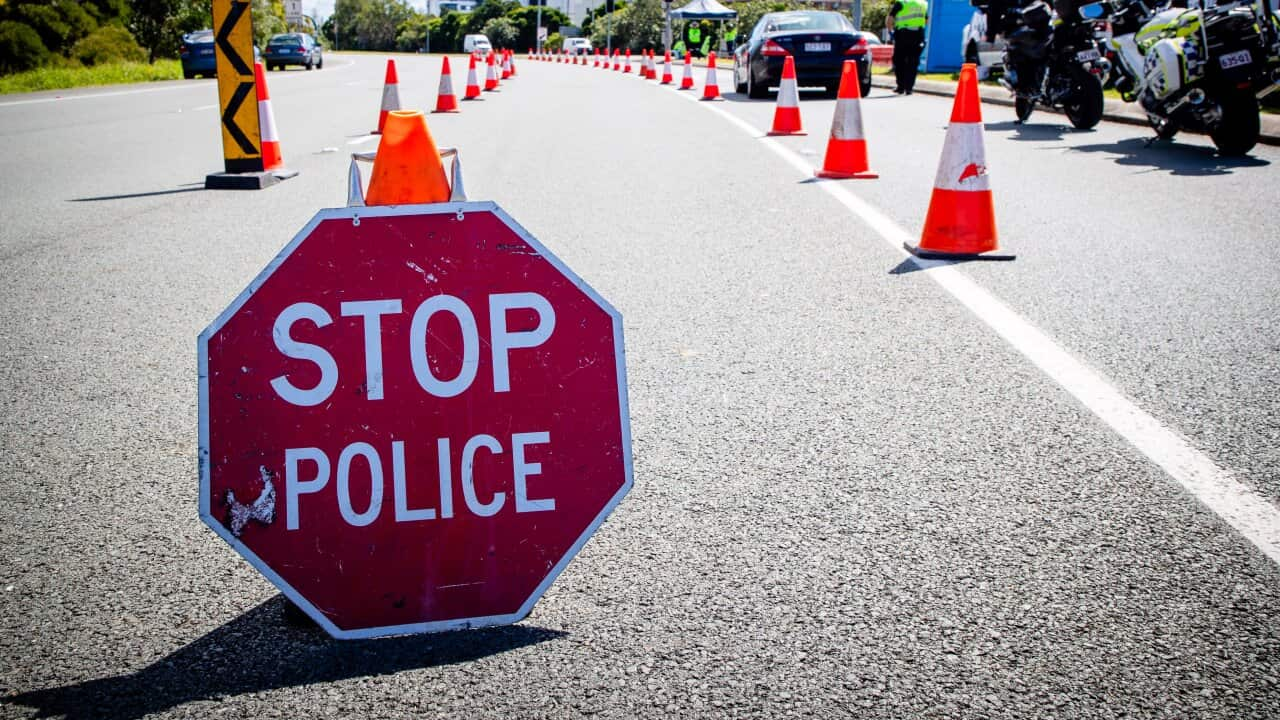The most recent coronavirus outbreak in Sydney's Northern Beaches has led to a swell of border closures across the country for travellers from New South Wales.
It has presented what some experts have called a sense of regionalism along state lines that's been heightened since the beginning of the pandemic, and exacerbated through the border closures.
Professor Andy Dawson, who specialises in social and political sciences at the University of Melbourne, said a once unified Australia appears to be a thing of the past.
"I'd always just thought of Australia as one unified nation. It was quite remarkable to see how tenuous and vulnerable the Federation was," Prof Dawson said.
Prof Dawson believes the growing presence and notoriety of state premiers since the beginning of the pandemic has created a sense of regionalism and state identity that was latent and under the surface before COVID-19.
"You do get a sense that the Australia project as a totality has come a little bit unhinged through the pandemic," he said.
This isn't isolated to Australia, according to Prof Dawson. He said there's been a growing push for Scottish independence that's been exacerbated during the pandemic.
"I think we're seeing exactly the same phenomenon here in Australia, a growth of regionalism that the pandemic has fostered," Prof Dawson said.
The decision to close borders amid the recent NSW outbreak isn't just one of epidemiology for Prof Dawson, he believes it's also politically motivated.
"The levels of regional identification and fear of regional outsiders, the levels are so high, that they realize it's a pretty popular move to close borders," he said.
"It is not just driven by epidemiology, I think it's partly driven by a sense that they realise that electorally it plays out well.
"People feel very, very comfortable with this sort of isolationism."
Where the border closures stand at present
All states and territories in Australia have closed their borders to NSW - in some capacity - during the festive season.
Victoria announced that residents from Greater Sydney, which includes the Central Coast and the Blue Mountains, are banned from crossing the border to Victoria. Premier Daniel Andrews declared the entire region a ‘red zone’.
Similar to Victoria, the Northern Territory and South Australia have shut their borders to anyone from Greater Sydney.
Tasmania has called the Northern Beaches a ‘high risk’ area and has banned anyone who has travelled to the region since December 11 - unless they are an essential traveller.
Travellers from Greater Sydney will need to quarantine for 14 days on arrival to the Northern Territory, Tasmania, ACT, South Australia and Victoria.
And Queensland and Western Australia have put back in place the hard border between their respective states and NSW.
NSW Premier Gladys Berijkian commented on Tuesday about the decision made by state and territory leaders to introduce restrictions on travellers from NSW.
"That's why my frustration at various stages of the pandemic with my other colleagues in other states is please consider the compassionate grounds," she said.
"There are parts of NSW completely unaffected by this current outbreak and yet everybody in NSW is suffering because other state leaders have made decisions."
Ms Berejiklian said NSW always tries to take a cautious and balanced approach when dealing with potential border closures and restrictions.
"That's why we waited until Victoria had consistently 140, 120, 180 cases a day before we closed our border," she said.
"That was a big step we took. We make sure the decisions we take consider the eight million people in the state, and not just particular groupings in one place or another.
"I do feel NSW has done more than its fair share and I ask other states to do the same and I look forward to other states stepping up."
As tensions mount, Prof Dawson said the pandemic has shown us that regional and state divisions exist - and can arise very quickly.
"And they could emerge in ways that could have consequences for the nation as a whole."
People in Australia must stay at least 1.5 metres away from others. Check your jurisdiction's restrictions on gathering limits.
If you are experiencing cold or flu symptoms, stay home and arrange a test by calling your doctor or contact the Coronavirus Health Information Hotline on 1800 020 080.
News and information is available in 63 languages at Please check the relevant guidelines for your state or territory: , , , , , , ,
Through award winning storytelling, The Feed continues to break new ground with its compelling mix of current affairs, comedy, profiles and investigations. See Different. Know Better. Laugh Harder. Read more about The Feed
Have a story or comment? Contact Us


